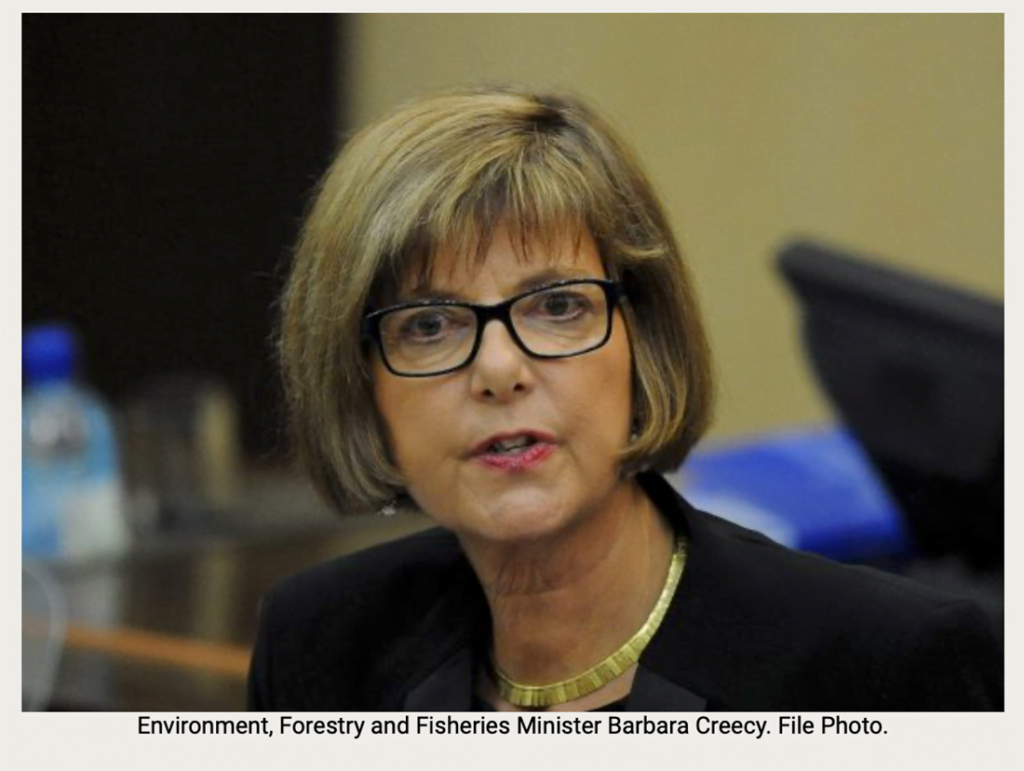NEWS / The Citizen 18 Feb 2020
She said her department would spend R1.9bn this year to restore wetlands, estuaries and coastal dunes to better protect human settlements from storms and floods.
Climate change poses a “significant risk” to South Africa’s socio-economic development, Environment, Forestry and Fisheries Minister Barbara Creecy said in the debate on President Cyril Ramaphosa’s State of the Nation address on Tuesday.
She acknowledged Ramaphosa’s undertaking for a “decisive shift in our energy trajectory at a time when humankind faces its greatest existential threat to a sustainable future, namely climate change”.
“Science tells us that our country and continent are warming much faster than the rest of the world,” Creecy said.
She added while the world had warmed by roughly one degree compared to pre-industrial times, the rate was twice that for Africa.
Creecy said extreme weather events had already affected the country, with the Eastern, Western and Northern Cape recently experiencing the longest periods of drought in recorded history, KwaZulu-Natal and the Wild Coast experiencing severe storms and flooding with unprecedented frequency, and coastal cities facing the effects of rising sea levels and storm surges.
She said it was now a scientifically accepted fact that climate change resulted from greenhouse gas emissions.
“It is the ultimate injustice that developing nations, such as our own, which have historically contributed the least to greenhouse gas emissions, are the most affected.”
She said historically, Africa contributed just 1% of greenhouses gasses. Currently, it produces 4%, with South Africa responsible for half of that.
Creecy said South Africa’s vulnerability to climate change was exacerbated by our economic inequality, poverty and our current dependence on coal-powered power stations.
“So, no matter how who look at it, climate change poses significant risks to our country’s current and future socio-economic development.
“But all is not yet lost, there is still time to take decisive action to mitigate the worst impacts of climate change and to adapt to a warmer world.
She said as a “responsible global citizen”, South Africa should also contribute to lower emissions.
Creecy added in consultation with all stakeholders, South Africa was finalising its strategy for lower emissions.
She said together with the Department of Science and Technology, her department would intensify research and development of green technologies.
“As we transmission, we must be mindful of our country’s current dependence on fossil fuels, both for energy generation and foreign exchange earnings.
“Our movement to a lower carbon, climate-resilient economy and society must be undertaken in a responsibly, phased and planned manner.”
Creecy added the soon-to-be constituted presidential commission on climate change would be tasked with coordinating the work of all sectors of the government and society in a common effort to ensure a just transition.
The Climate Change Bill will be brought to the National Assembly this year, she said.
Creecy met with the South African Weather Services and it agreed to educate local communities about climate change.
She said her department would spend R1.9bn this year to restore wetlands, estuaries and coastal dunes to better protect human settlements from storms and floods, adding climate change could only be addressed by the world’s nations working together.
“Accordingly, we must be seriously concerned that one of the world’s biggest emitters has taken a decision to withdraw from the Paris Accord,” she said of the Trump administration’s decision to withdraw from the accord.
“Our country is a responsible global citizen. We will not shrink from the task that confronts us.”
UDM leader Bantu Holomisa also raised the matter, saying the state of the environment needed attention, especially in terms of pollution and erosion.
“I agree with you, Mr President, that climate change is a reality of which South Africans must be aware,” he said.
DA leader John Steenhuisen welcomed Ramaphosa’s announcement that the country’s energy supply would be augmented by renewable energy, natural gas, and hydro.


